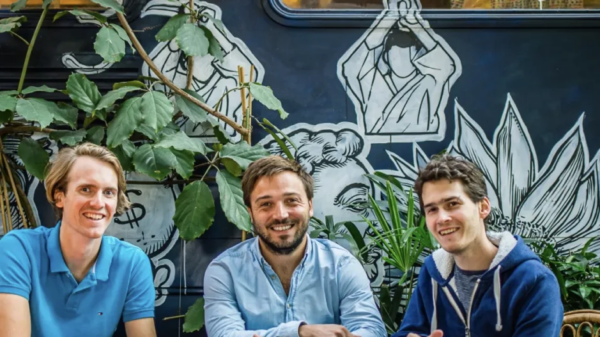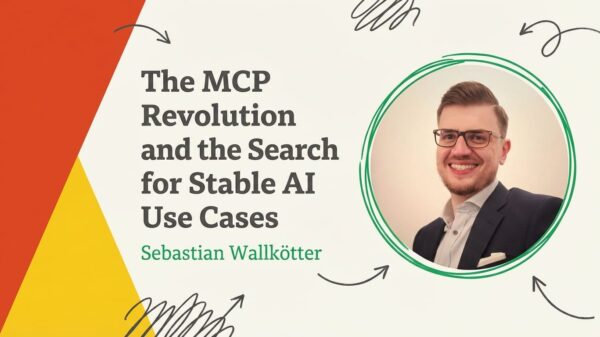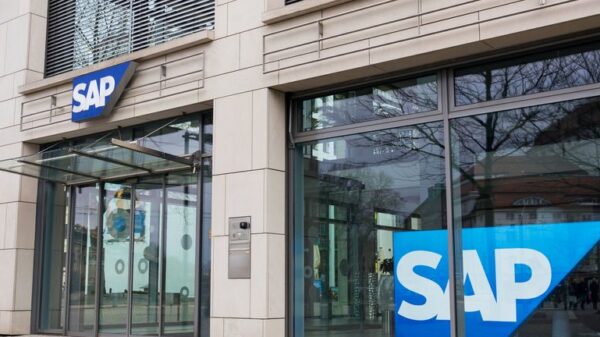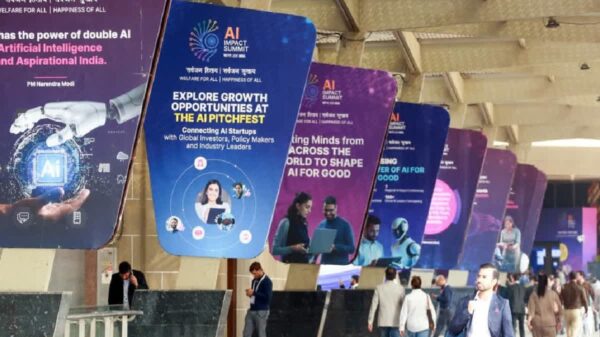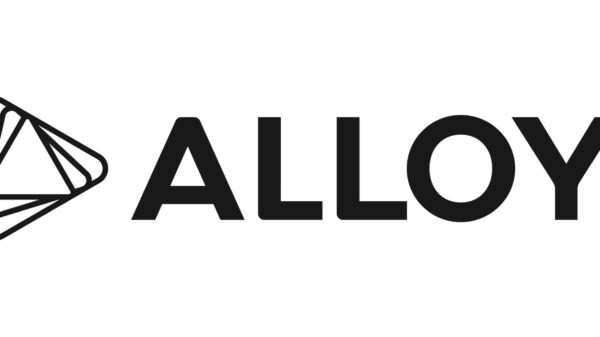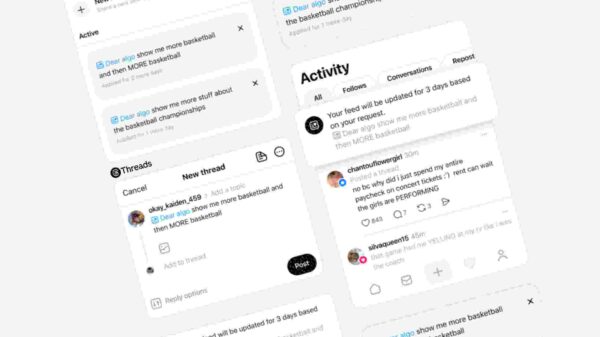AI is undergoing a transformative shift into its collaborative era, revolutionizing workflows across various industries. AI copilots are emerging as trusted partners, enhancing accuracy and allowing teams to concentrate on uniquely human tasks: thinking, creating, and connecting. Following our previous discussion on the benefits of purposeful AI application, we now turn our attention to systems that collaborate rather than merely assist. From construction to human resources, the key advantage lies in amplifying human effort rather than automating it.
As organizations evaluate the integration of AI copilots, the central question is not if they will adopt these technologies, but how they will tailor them to their specific environments. For instance, Balfour Beatty, a major player in the UK construction sector with 27,000 employees, has recognized the complexities that come with large infrastructure projects. According to Jon Ozanne, the company’s Chief Information Officer (CIO), complexity often results in inefficiencies and risks. “We know that rework has a cost: it takes time, it takes money, and it carries health and safety implications,” he explains. “This is about how we ensure we build things right the first time.”
Rework-related safety incidents account for 39% of construction accidents, as reported by BBI Services, while the Get It Right Initiative estimates that avoidable errors cost the industry between £5 billion and £20 billion annually. In response, Balfour Beatty has adopted Microsoft 365 Copilot across its operations, aiming to streamline processes, reduce waste, and enhance safety outcomes.
“Finding information is now so much easier,” Ozanne notes. The AI copilot has shown remarkable efficacy in mining data from Microsoft software, allowing project teams to access essential historical data, safety documentation, and compliance records in seconds instead of hours.
The impact has been significant: an internal survey among early adopters revealed that 75% of respondents felt Copilot improved their work, 77% reported reduced mental effort on routine tasks, and 78% stated it enhanced communication. Additionally, the AI tool has bolstered confidence among neurodiverse employees, facilitating better organization and presentation of ideas.
“Some of our people have said that Copilot has made them that little bit more confident to be able to communicate or present,” Ozanne adds. “This isn’t about eliminating 100% of what people do – it definitely gives them a launchpad to move forward.”
The influence of Copilot extends to how Balfour Beatty conducts planning and problem-solving meetings. Project Director Martin McGough mentions, “By handling note-taking and action tracking, it frees everyone up to focus on discussion. It has saved hours of manual review.” Joe Chastney, Head of Digital Transformation, emphasizes Copilot’s role in supporting preparations for monthly portfolio reviews. “It intelligently surfaces key insights from a wide range of data sources, highlighting areas that require attention, such as safety, risk, and cost.”
For Balfour Beatty, these advancements are merely the beginning. Upcoming AI-driven initiatives aim to review inspection and test plans, optimize maintenance routes, and analyze satellite imagery to assess site ecology, thus reducing both environmental and safety risks.
People-First AI: Access Group’s Sector-Specific Approach
In contrast, Access Group is carving out its niche in the digital landscape with its Access Evo Platform, a large-scale, secure AI ecosystem developed with Microsoft and OpenAI. Oliver Quayle, Senior Group Director at Access, asserts that “developing any digital platform today requires thorough and strategic thought to ensure the technology is a force for good.” This strategy has resulted in customers reporting an average 23% increase in profitability, with many claiming the platform became self-funding within months.
Moreover, early adopters have experienced a 50% reduction in administrative tasks, especially in sectors like education where teachers have reportedly halved the time spent on marking and reporting. Access Group has also achieved a 25% reduction in staff turnover, which Quayle credits to a people-first philosophy aimed at enhancing employee productivity rather than driving layoffs.
To support this, Access has rolled out comprehensive AI training programs for its 9,000 employees, ranging from technical training to AI fluency courses for non-technical roles. This commitment extends to scholarships and apprenticeships at UK universities, fostering a broader talent pipeline.
Security measures are also paramount; the Access Evo platform operates as a closed-loop system, ensuring customer data remains secure and is not used for AI training. Looking ahead, Access plans to enable customers to build their own AI applications, shifting relationships from vendor-based to partnership-driven, underscoring the importance of trust and value.
Everyday Efficiency: Infinity Group’s HR Copilot
At a more operational level, Infinity Group demonstrates that even small-scale copilot deployments can generate significant cultural change. By automating recruitment and HR tasks, the company is reclaiming valuable time and redefining what “human resources” entails. “Fairness and alignment with our values are non-negotiable,” says Baldwin, ensuring that every shortlist generated by the copilot is human-reviewed for compliance with diversity and inclusion principles.
Infinity has also launched a self-service HR bot, “Henry,” which addresses common employee queries. Since its implementation, HR has experienced a reduction in routine requests, allowing the team to concentrate on strategic initiatives. Louise Otton, Head of Talent Development and Culture, emphasizes that AI is not about diminishing the human element but rather enabling it. “Automation has freed our people team from repetitive tasks. We’re spending more time on culture, retention, and talent development,” she notes.
Across these varied organizations—Balfour Beatty, Access Group, and Infinity Group—a shared theme emerges: AI copilots are fostering collaboration rather than imposing control. This collaborative dynamic is extending human potential, leading to workplaces where creativity and connection thrive.
As Balfour Beatty’s Jon Ozanne puts it, “If we eliminate waste, we’re going to make such significant gains.” The benefits extend beyond efficiency; they encompass cultural, emotional, and creative dimensions. The next frontier in AI is already on the horizon: agentic AI, systems capable of acting independently. In our upcoming installments, we will explore how this evolution is reshaping enterprise strategy, governance, and trust.
See also Clifford Chance Cuts 10% of London Staff Amid AI Integration, Restructures Roles
Clifford Chance Cuts 10% of London Staff Amid AI Integration, Restructures Roles LCPC AI Enhances Decision-Making Tools Amid Digital Asset Market Volatility
LCPC AI Enhances Decision-Making Tools Amid Digital Asset Market Volatility Jimdo Launches AI Chatbot Companion, Boosting Inquiries by 40% for Small Businesses
Jimdo Launches AI Chatbot Companion, Boosting Inquiries by 40% for Small Businesses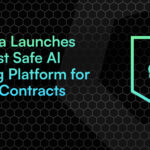 Certora Launches Open-Source AI Composer with Integrated Formal Verification for Smart Contracts
Certora Launches Open-Source AI Composer with Integrated Formal Verification for Smart Contracts AI Tools Empower Founders to Think Like Marketers, Boosting Clarity and Creativity
AI Tools Empower Founders to Think Like Marketers, Boosting Clarity and Creativity

